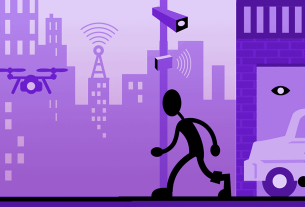In a chilling sign of how far law enforcement surveillance has encroached on personal liberties, 404 Media recently revealed that a sheriff’s office in Texas searched data from more than 83,000 automated license plate reader (ALPR) cameras to track down a woman suspected of self-managing an abortion. The officer searched 6,809 different camera networks maintained by surveillance tech company Flock Safety, including states where abortion access is protected by law, such as Washington and Illinois. The search record listed the reason plainly: “had an abortion, search for female.”
Screenshot of data
After the U.S. Supreme Court’s 2022 Dobbs v. Jackson Women’s Health Organization decision overturned Roe v. Wade, states were given sweeping authority to ban and even criminalize abortion. In Texas—where the officer who conducted this search is based—abortion is now almost entirely banned. But in Washington and Illinois, where many of the searched Flock cameras are located, abortion remains legal and protected as a fundamental right up to fetal viability.
The post-Dobbs legal landscape has also opened the door for law enforcement to exploit virtually any form of data—license plates, phone records, geolocation data—to pursue individuals across state lines. EFF’s Atlas of Surveillance has documented more than 1,800 agencies have deployed ALPRs, but at least 4,000 agencies are able to run searches through some agencies in Flock’s network. Many agencies share the data freely with other agencies across the country, with little oversight, restriction, or even standards for accessing data.
While this particular data point explicitly mentioned an abortion, scores of others in the audit logs released through public records requests simply list “investigation” as the reason for the plate search, with no indication of the alleged offense. That means other searches targeting someone for abortion, or another protected right in that jurisdiction, could be effectively invisible.
This case underscores our growing concern: that the mass surveillance infrastructure—originally sold as a tool to find stolen cars or missing persons—is now being used to target people seeking reproductive healthcare. This unchecked, warrant-less access that allows law enforcement to surveil across state lines blurs the line between “protection” and persecution.
From Missing Cars to Monitoring Bodies
EFF has long warned about the dangers of ALPRs, which scan license plates, log time and location data, and build a detailed picture of people’s movements. Companies like Flock Safety and Motorola Solutions offer law enforcement agencies access to nationwide databases of these readers, and in some cases, allow them to stake out locations like abortion clinics, or create “hot lists” of license plates to track in real time. Flock’s technology also allows officers to search for a vehicle based on attributes like color, make and model, even without a plate number.
The threat is compounded by how investigations often begin. A report published by If/When/How on the criminalization of self-managed abortion found that about a quarter of adult cases (26%) were reported to law enforcement by acquaintances entrusted with information, such as “friends, parents, or intimate partners” and another 18% through “other” means. This means that with ALPR tech, a tip from anyone can instantly escalate into a nationwide manhunt. And as Kate Bertash of the Digital Defense Fund explained to 404 Media, anti-abortion activists have long been documenting the plates of patients and providers who visit reproductive health facilities—data that can now be easily cross-referenced with ALPR databases.
The 404 Media report proves that this isn’t a hypothetical concern. In 2023, a months-long EFF investigation involving hundreds of public records requests uncovered that many California police departments were sharing records containing detailed driving profiles of local residents with out-of-state agencies, despite state laws explicitly prohibiting this. This means that even in so-called “safe” states, your data might end up helping law enforcement in Texas or Idaho prosecute you—or your doctor.
That’s why we demanded that 75 California police departments stop sharing ALPR data with anti-abortion states, an effort that has largely been successful.
Surveillance and Reproductive Freedom Cannot Coexist
We’ve said it before, and we’ll say it again: Lawmakers who support reproductive rights must recognize that abortion access and mass surveillance are incompatible.
The systems built to track stolen cars and issue parking tickets have become tools to enforce the most personal and politically charged laws in the country. What began as a local concern over privacy has escalated into a national civil liberties crisis.
Yesterday’s license plate readers have morphed into today’s reproductive dragnet. Now, it’s time for decisive action. Our leaders must roll back the dangerous surveillance systems they’ve enabled. We must enact strong, enforceable state laws to limit data sharing, ensure proper oversight, and dismantle these surveillance pipelines before they become the new normal–or even just eliminate the systems altogether.



